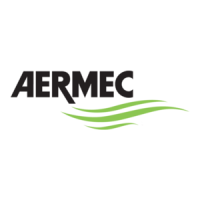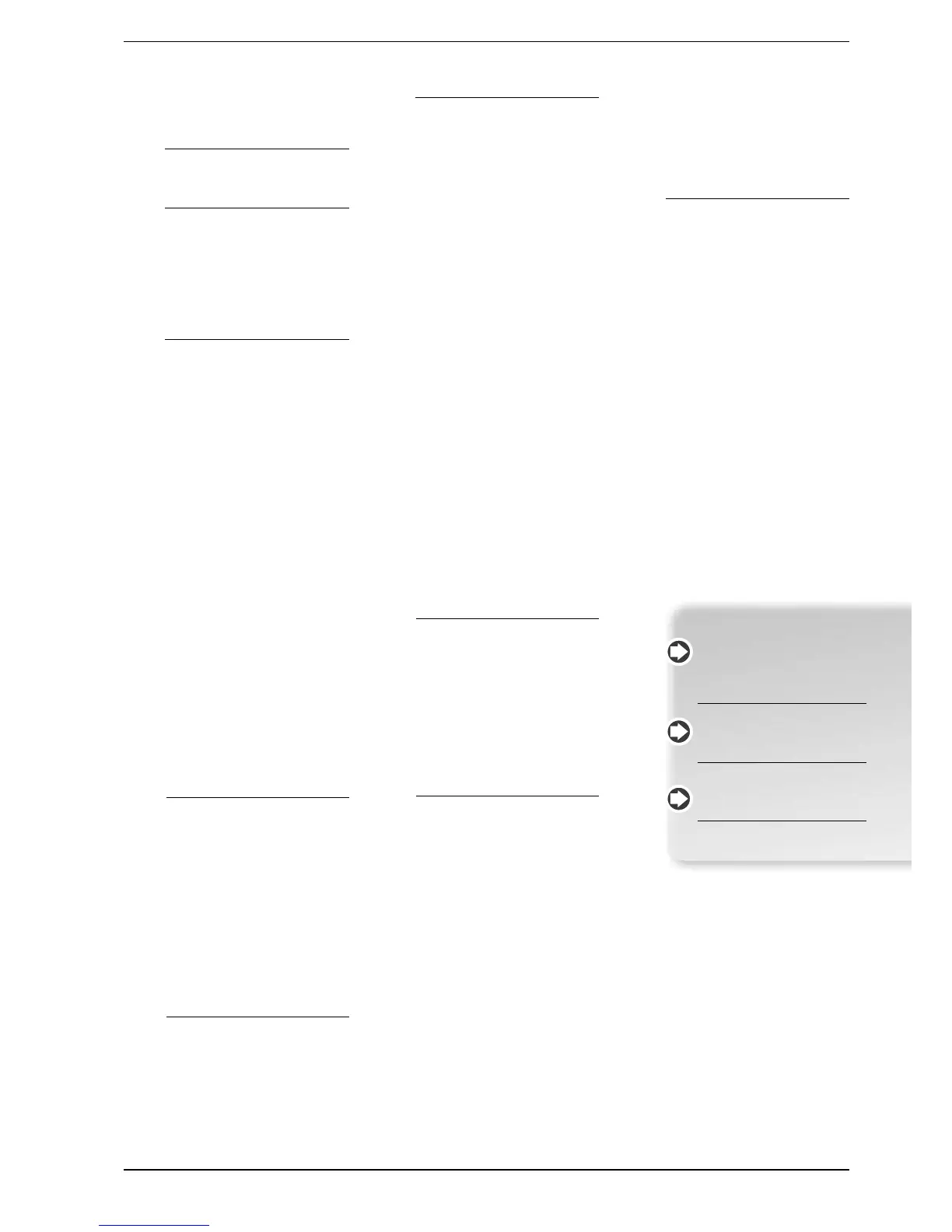INSPY. 1003. 4138305_03
87
23. FUNCTIONING
CHARACTERISTICS
23.1. COOLING SET POINT
(Default defi ned) = 7°C, ∆t = 5°C.
23.2. COMPRESSOR START DELAY
To prevent the compressor start too close
to each other, two functions have been
arranged.
- Minimum time from last turnoff 60
seconds.
- Minimum time from last start 300 seconds.
23.3. CIRCULATION PUMP
The electronic board provides an output to
manage the circulation pump.
After the fi rst 10 seconds of the pump op-
eration, when the water fl ow rate is running,
activate the function of water fl ow rate
alarm (fl ow switch).
23.4. ANTI-FREEZE ALARM
The anti-freeze alarm is active as if the
machine is turned-off or if the machine
is in standby mode. In order to prevent
breakage of the plate exchanger due to
frozen water, the compressor is locked (if
the machine is under 4° C) and the resist-
ance starts up (if standby below 5° C), if the
temperature detected by the probe in the
exchanger output the chiller is below +4 ° C.
WARNING
THE ANTI-FREEZE SET TEMPERATURE
CAN BE VARIED ONLY BY AN AU-
THORISED SERVICE CENTRE AND ONLY
AFTER VERIFYING THAT IN THE WATER
CIRCUIT IS AN ANTIFREEZE SOLUTION.
The intervention of this alarm sets the com-
pressor block and not of the pump, which
remains active, and the resistance starts-up
if installed.
For the restoration of the normal functions
of the temperature of the water output
have to come back over +4 ° C, the reset
is manual.
W
ARNING:
AT ANY INTERVENTIONS OF THIS
ALARM IT IS RECOMMENDED TO IM-
MEDIATELY CONTACT THE NEAREST
TECHNICAL SERVICE ASSISTANCE
23.5. WATER FLOW RATE ALARM
The pCo
3
provides the management of a
water fl ow rate alarm commanded from a
fl ow switch standardly installed on the ma-
chine. This safety type can occur after the
fi rst 10 seconds of operation of the pump if
the water fl ow rate is not suffi cient.
This alarm sets the block of the compressor
and the pump.
WARNING
Inspection, maintenance and pos-
sible repair operations must be
carried out only by an authorised
technician according to the law.
A deficient check/maintenance
operation may result in damage
to things and people.
For machines installed near the
sea the maintenance intervals
must be halved.
24. REGULAR MAINTENANCE
Any cleaning operation is forbidden
before disconnecting the unit from the
power supply.
Check for voltage before operating.
Periodic maintenance is essential to
maintain the unit in perfect working order
under the functional as well as the ener-
getic aspect.
Therefore it is essential to provide yearly
controls for the:
24.5.1. Hydraulic circuit
CONTROL:
− Water circuit filling
− Water filter cleaning
− Control of differential pressure switch/
flow switch
− Air in the circuit (leaks)
− That the water flow rate to the
evaporator is always constant
− The hydraulic piping thermal insulation
state
− Where provided the percentage of
glycol
24.5.2. Electric circuit
CONTROL:
− Efficiency of safety devices
− Electrical power supply
− Electrical power consumption
− Connections tightened
− Function of the compressor housing
resistance
24.5.3. Chiller circuit
CONTROL:
− Compressor conditions
− Working pressure
− Loss test for the control of the sealing
of the refrigerant circuit
− Function of high and low pressure
switches
− Perform the necessary checks on the
filter-drier to verify their efficiency.
24.5.4. Mechanical controls
CONTROL:
− The screws, compressors and the
electric box of the unit external pan-
elling are properly tightened. If they
are poorly tightened, they produce
abnormal noise and vibrations
− The structure conditions.
If necessary, treat oxidised parts
with paints suitable for eliminating or
reducing oxidation.
25. EXTRAORDINARY
MAINTENANCE
The NS are loaded with R134a gas and
tested in the factory. In normal condi-
tions, no Technical Assistance Service
operation is needed for the refrigerant
gas check. Along time, however, small
leaks from the joints may be generated.
Due to these leaks, the refrigerant comes

